After highlighting the most overlooked films of 2022 and our overall favorites of 2022, today we put our spotlight on those that need a home in the first place: movies we loved on the festival circuit—from Berlinale, Sundance, TIFF, NYFF, Rotterdam, and beyond—still seeking U.S. distribution.
We hope that highlighting these titles spurs some distributor interest and a forthcoming release; we’ll be sharing any updates in this regard on Twitter, so make sure to follow us there. As we move into 2023, one can also track our upcoming festival coverage here.
The Adventures of Gigi the Law (Alessandro Comodin)
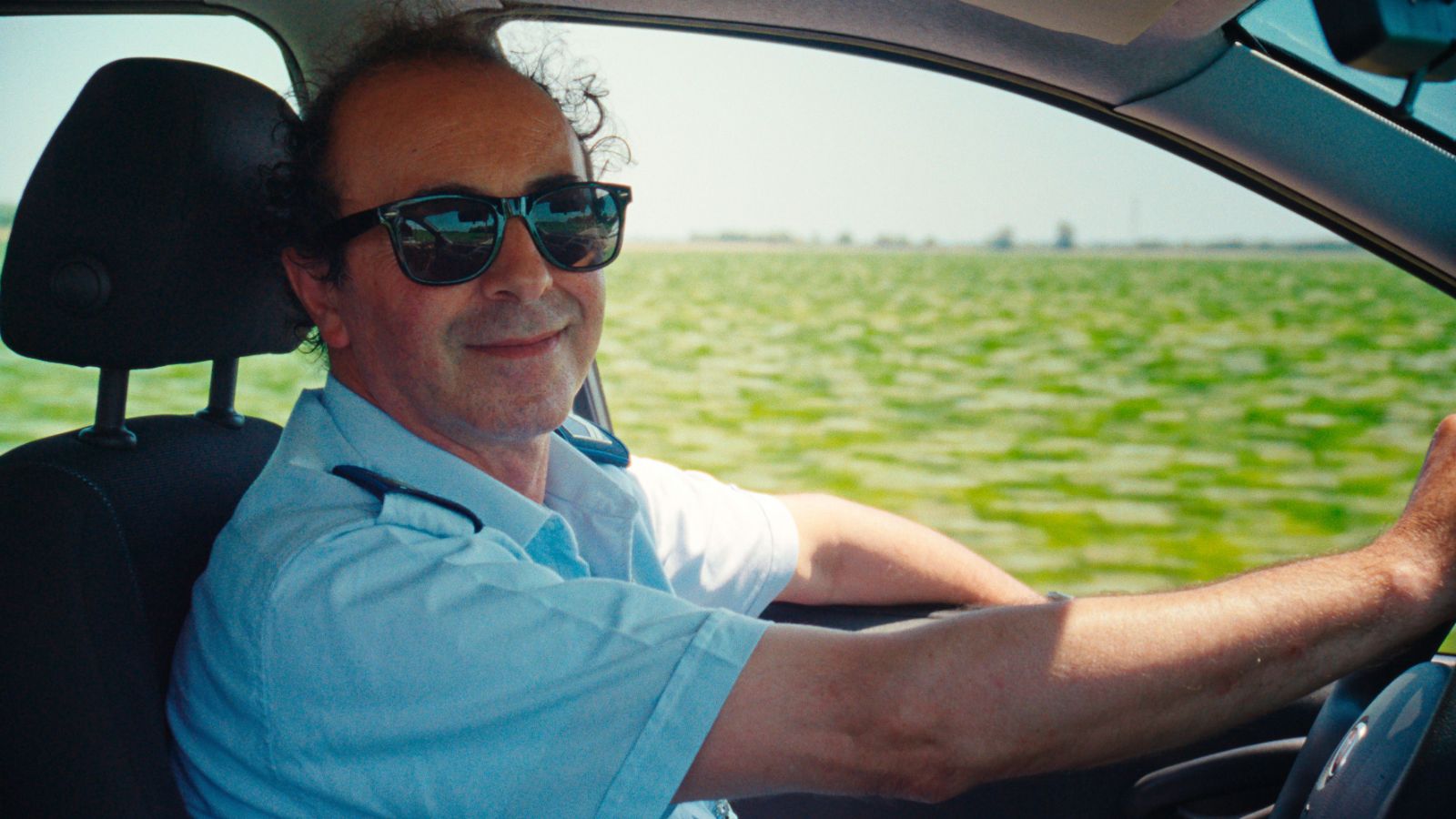
In the heat of late summer, San Michele al Tagliamento is a humid emulsion of corn fields, cypress trees, and silent streets. Sitting along the border between Veneto and Friuli, in the northeast of Italy, it’s a rural town in which nothing ever happens, everyone knows each other, and the sun throws everything into a somnolent lockdown—the concrete blazing, the air liquid. Ostensibly a portrait of a man and his daily routine, Alessandro Comodin’s The Adventures of Gigi the Law is also a much larger canvas of the place he roams, a landscape teeming with intimations of sinister mysteries and wondrous revelations. What kicks off as a crime procedural swells into a kind of fairytale, and an anonymous stretch of countryside turns into a microcosm where desire and dread, fear and awe leak into one another. Gigi the Law brims with wide-eyed wonder, the same that’s frozen on its protagonist’s face. At its most lyrical it finds beauty within the tedium of small-town life; it’s this receptivity to poetry, this susceptibility to the epic banal, that turns Gigi the Law into a cumulatively poignant oddity. – Leonardo G. (review)
Brother and Sister (Arnaud Desplechin)

Brother and Sister, Arnaud Desplechin’s tale of feuding siblings (played by Melvil Poupaud and Marion Cotillard) who re-enter each other’s orbits after their parents get in a car accident, is the sort of heightened melodrama that will have some viewers laughing or sneering (or some combination of both). But if you’re open to Desplechin’s directorial whims or have an interest in fraught familial relationships, Brother and Sister is a compelling effort—defiant in its handling of conventional drama and unafraid to be as flawed as its characters. – C.J. P.
Coma (Bertrand Bonello)
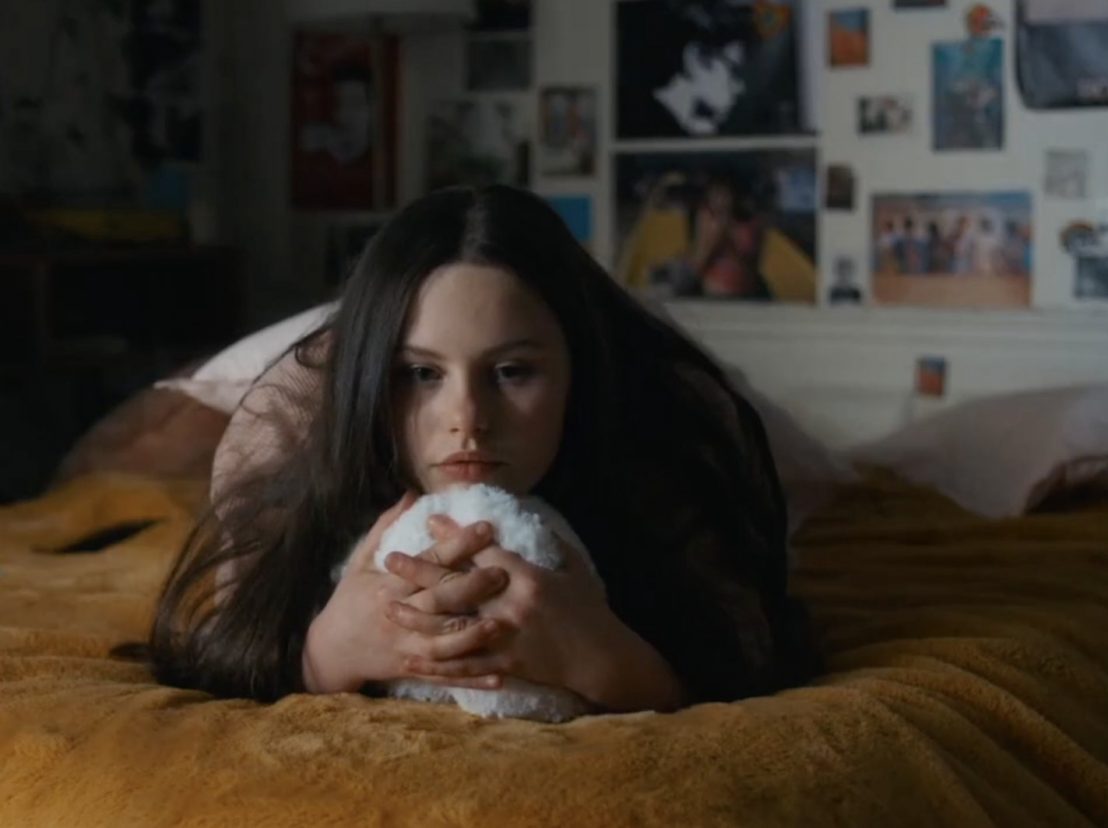
It makes sense, we can admit, why some herein will go unbought. The market’s tough; people’s attention spans aren’t what they used to be, or simply not going in the right place; there’s little historical precedent for a work of its ilk yielding success. Not so with Coma. Bertrand Bonello’s new film is larger at the center than its primary setting could ever suggest, rendering a teen girl’s room the haunted house where YouTube, FaceTime, and (in a sequence so frightening a little voice in me kind of wants it to be forever deleted) Zoom are doors to terror, discovery, dead ends, guffaws, companionship, new forms of hope. A diary, a self-portrait, a letter from father to daughter, a statement on Where We All Are, and an abstraction of each. The defining film of our decade? I know the answer; I hope you’ll find out. – Nick N.
The Dream and the Radio (Renaud Després-Larose and Ana Tapia Rousiouk)

A relationship between a couple, their vagrant friend, and a political revolutionary makes up the narrative foundation of The Dream and the Radio, a Canadian microbudget feature that takes heavy inspiration from a host of literary, philosophical, and cinematic influences (most notably the late Jean-Luc Godard). It’s a winding, sometimes tedious journey given its lengthy runtime, but one filled with gorgeous imagery, a slew of ideas, and a seemingly infinite amount of visually inventive ways to express them. – C.J. P.
Far Far Away (Amos Why)
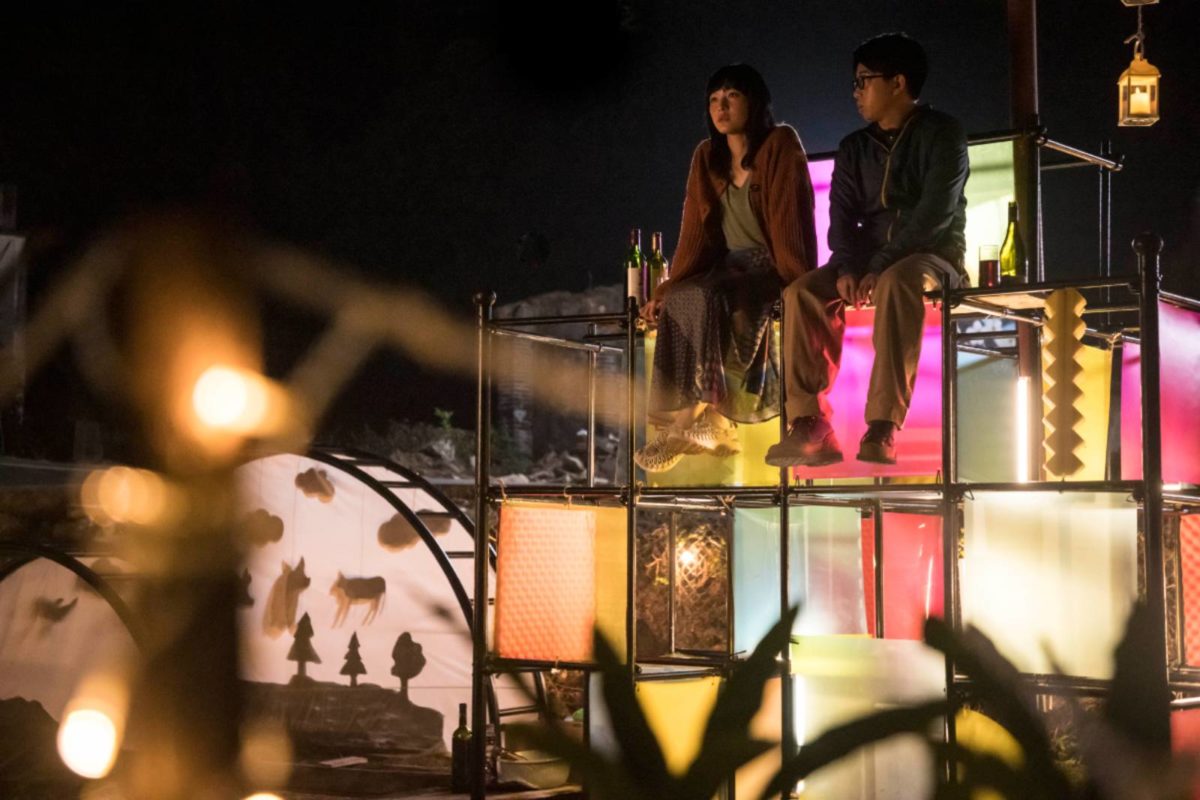
Director Amos Why describes Far Far Away as “a romance comedy of Hong Kong, on Hong Kong and about Hong Kong.” It’s a movie that also sums up political uncertainties facing Hong Kong in 2022. The plot follows a tech nerd navigating five separate relationships that unfold in suburbs outside Hong Kong’s urban center. A date that can take hours to get to on trams, buses, and ferries might turn nightmarish with a single wrong word. With censors cracking down, many Hong Kongers feel the same way about China. Why leans on familiar rom-com tropes—love songs, cutesy animation, pop fashions, etc. But his direction is rock-solid when it comes to the women in his script, particularly sensational newcomer Jennifer Yu Heung-ying. Confident, no-nonsense, fully in command, they elevate Far Far Away to one of the best Hong Kong films of the year. – Daniel E.
Goddamned Asura (Lou Yi-an)

Update: Goddamned Asura has been acquired by Cinedigm.
Based on a real-life shooting in a Taipei night market, Goddamned Asura explores multiple points-of-view to show why a video game developer opens fire on customers in a food stall. Director Lou Yi-an juggles locations from slums to high rises, schools to jails, shifting among social classes and generations, replaying situations with different outcomes. “The harder my characters want to climb uphill, the harder I want to pull them down,” he said. “We all do things in life over and over again, even though they never work.” Lou’s uncompromising but sympathetic film was chosen to represent Taiwan at the Oscars. – Daniel E.
I Have Electric Dreams (Valentina Maurel)
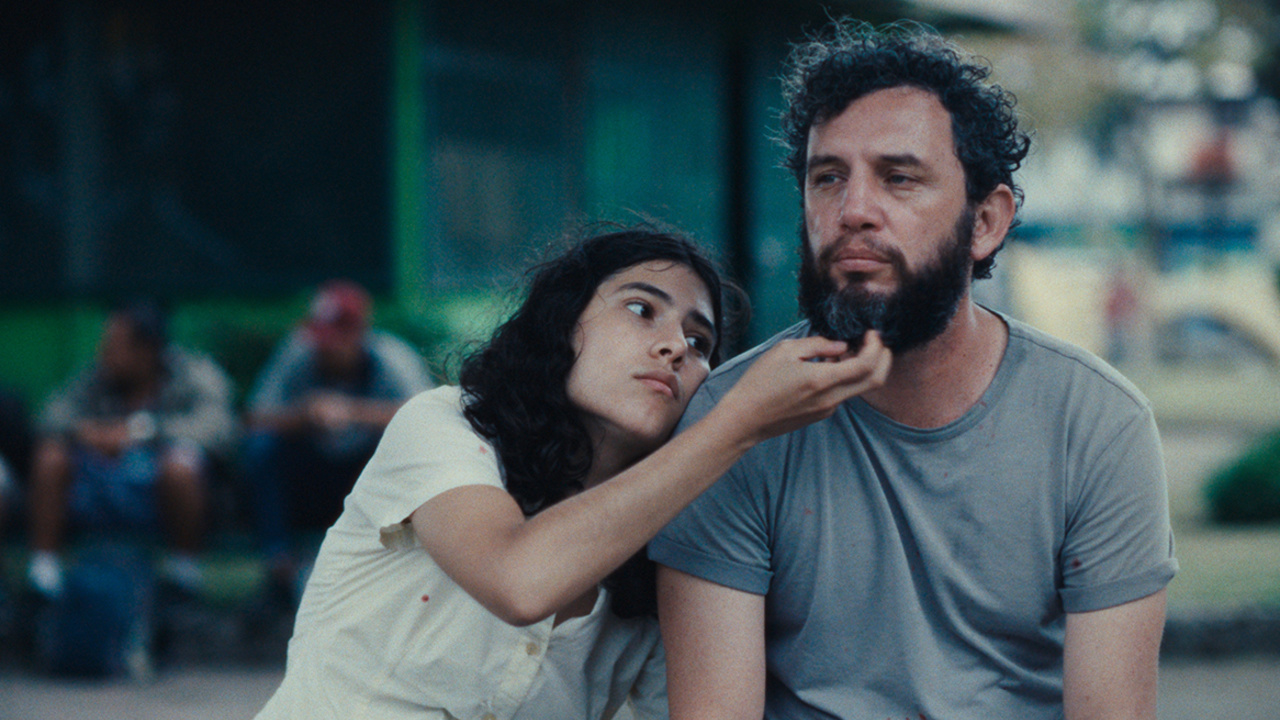
Nothing catches fire in Valentina Maurel’s I Have Electric Dreams, but the atmosphere is so inflammable, the air so taut, everything could ignite at any moment. True to its title, this cumulatively harrowing tale of a 16-year-old girl and her estranged, anger-prone father feels like it’s been yanked out of an electric storm. Even the frames carry a kind of static, throbbing in-sync with parent and child as they crash into each other only to drift away and collide again, each confrontation more seismic than the others. To be watching Maurel’s feature debut is to bear witness to a self-destructive waltz; there are scenes of almost unbearable sadness and loneliness, but Dreams is no dirge, and all dread the film accrues only makes its closing catharsis so much more affecting. – Leonardo G. (full review)
It Is Night in America (Ana Vaz)
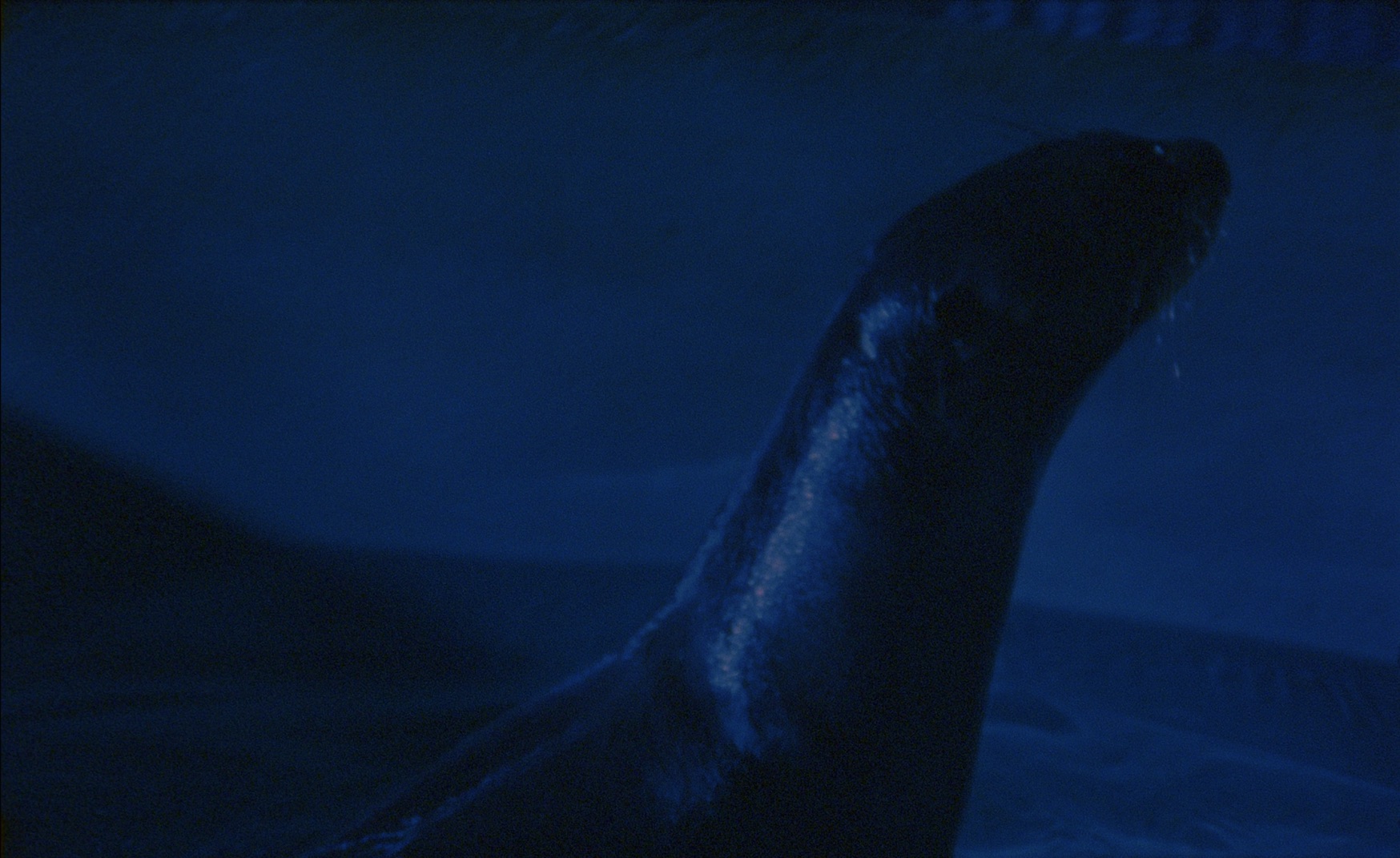
The few people bobbing up in Ana Vaz’s It Is Night in America are anonymous ciphers, their faces scarcely (if at all) visible, protruding limbs or silhouettes pressed against the concrete. Night, Vaz’s first feature, is a caliginous foray into the animal world hidden in and around Brasilia, where humans take a backseat and the megacity stands as a skyscraper-infested jungle. The film’s protagonists are a pantheon of exiles: monkeys bolting across streets, cobras hiding in private gardens, capybaras resting on lawns, giant otters roaming water ducts. “Are animals invading our cities,” a voice wonders halfway through, “or are we occupying their habitat?” It’s a question that might as well double as a tagline, but Night has a way of stretching and expanding its focus, and its close-up portraits of the capital’s fauna swell into something else entirely. Gradually, the film becomes a story of an invasion—a study of Brazil’s rampant urbanization and the creatures it made homeless. It becomes a tale of two cities, of two kingdoms fighting in a zero-sum game. It becomes a Western. – Leonardo G. (full review)
A Human Position (Anders Emblem)
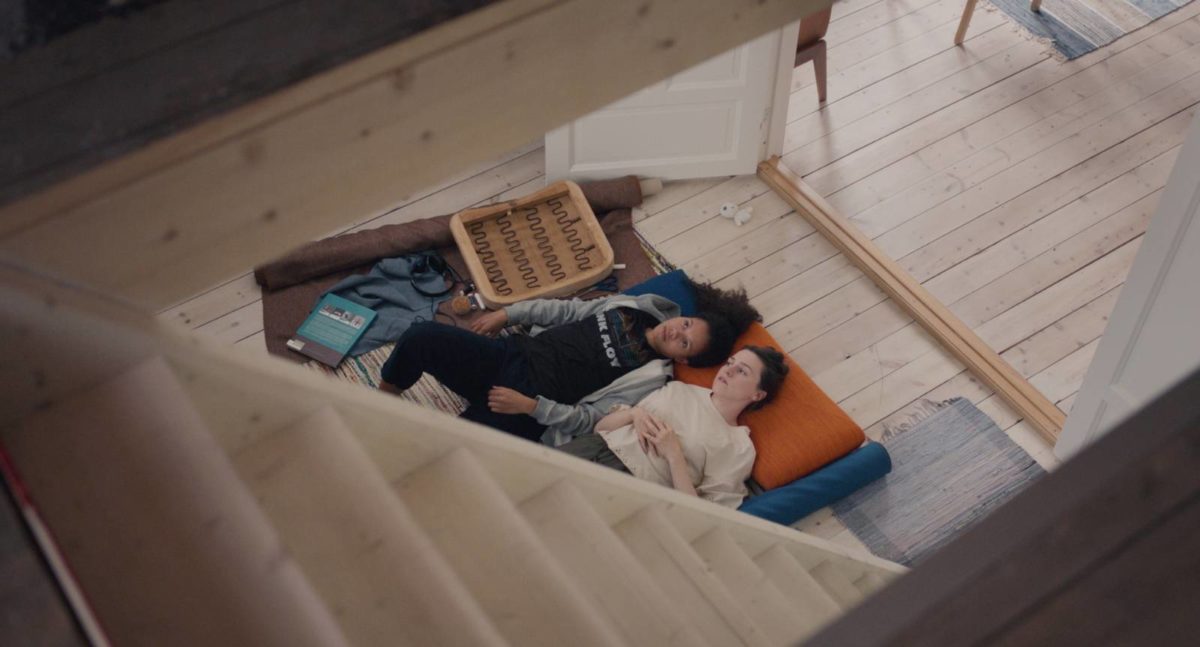
Update: A Human Position is now on MUBI.
Anders Emblem’s A Human Position, in which a young journalist’s investigation of a news story from her quiet, seaside village sparks a personal crisis, is so quiet and unassuming it’s no surprise that it slipped under most people’s radars. It’s still a shame, though: its paradoxical nature (ultra-precise in its direction yet comforting to watch, dealing with heavy political and personal subject matter but somehow always light on its feet) makes for beguiling experience that establishes Emblem as an exciting new filmmaker. – C.J. P.
A Litte Love Package (Gastón Solnicki)
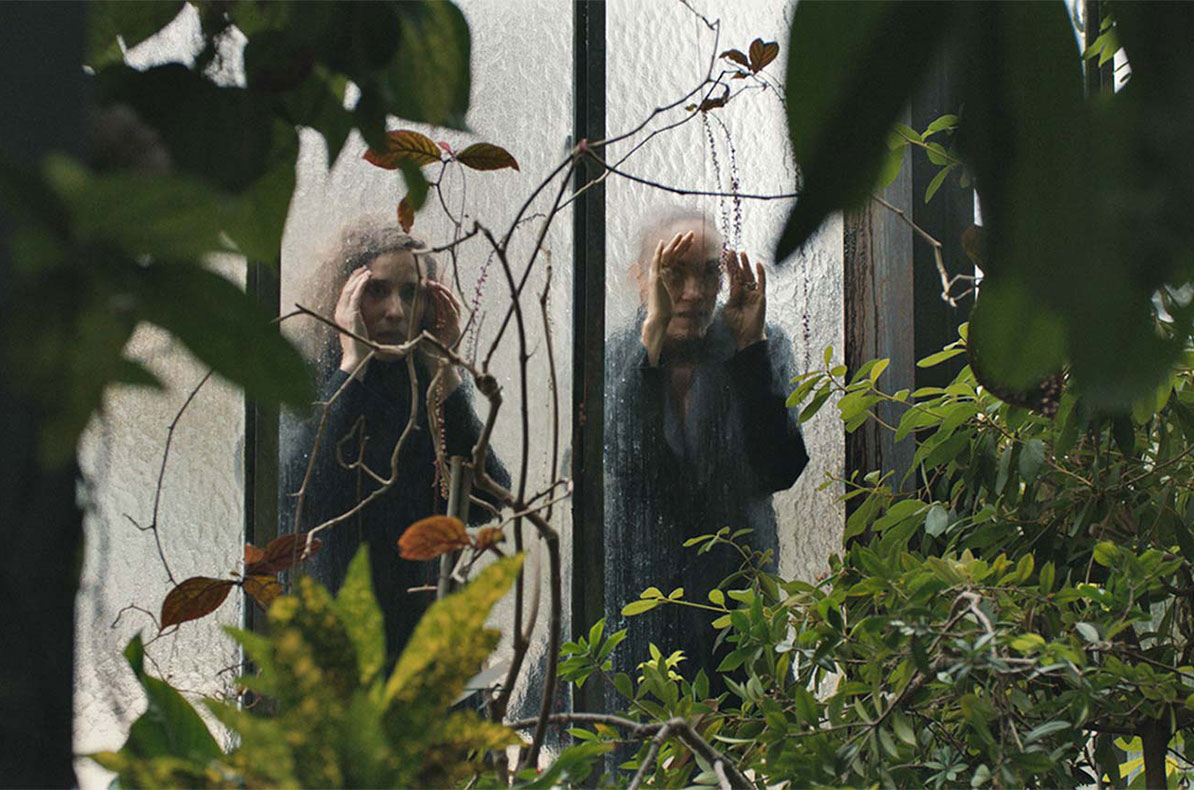
In A Little Love Package, Vienna’s institutions, people, buildings, and overlapping epochs make for a stiff drink: a bright, effervescent, lightly intoxicating film easily downed in one. The director is Gastón Solnicki, a nicely ruminative Buenos Aires filmmaker whose make-it-up-as-you-go approach (often shooting without a script, the plot revealing itself organically) allows his films to meander. Solnicki’s work has a playful spirit: it’s episodic both in form and content, though never amorphous; and he moves between narrative, documentary, still imagery, and immersive sound with seamless élan. Forged in lockdown, Love Package is a breezy collage of meteorites and cigarettes; cheese and boiled eggs, and how best to make them. But at heart it’s about how eras end, what they leave behind, and how new ones begin. – Rory O. (full review)
Love Life (Kôji Fukada)
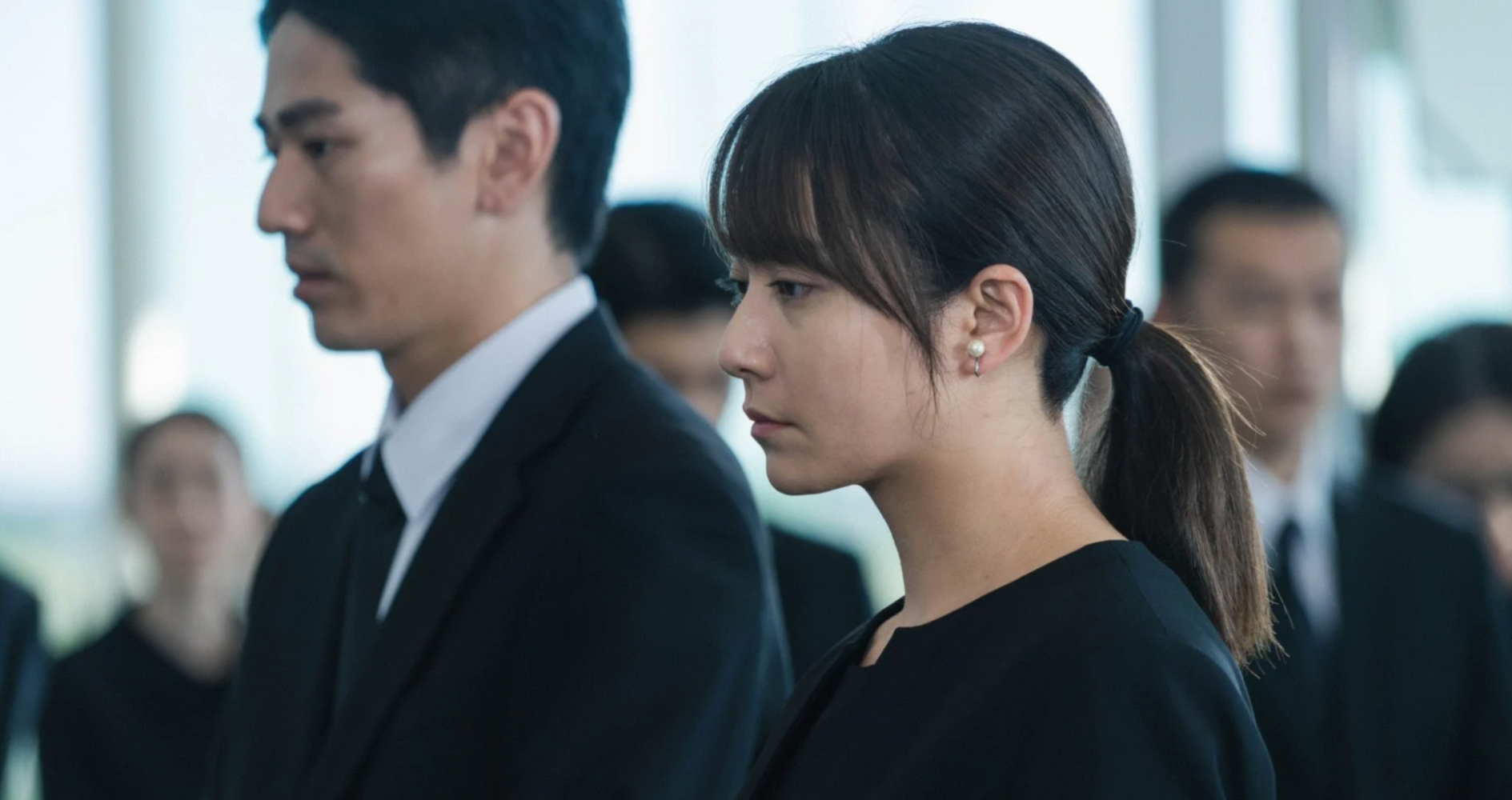
Update: Love Life has been picked up by Oscilloscope Laboratories.
Love Life is one of those films that really wears its screenplay. The plot follows a mother’s attempts to come to terms with the death of a child, but it’s more about unusual paths the journey takes for her to get there. The director is Kôji Fukada, a filmmaker who studied under Kiyoshi Kurosawa and cites Rohmer as a key influence. The first of Fukada’s films to complete for one of the grand festival awards, it premiered this week in what has been if not the best, then at least the glitziest Venice lineup in recent memory. Amongst the stars, Love Life (named for an Akiko Yano song of the same name) is jarringly everyday in color palette and setting, but has just the right amount of scope, filmmaking nous, and unusual choices to hold its own and even stand out. – Rory O. (full review)
Padre Pio (Abel Ferrara)
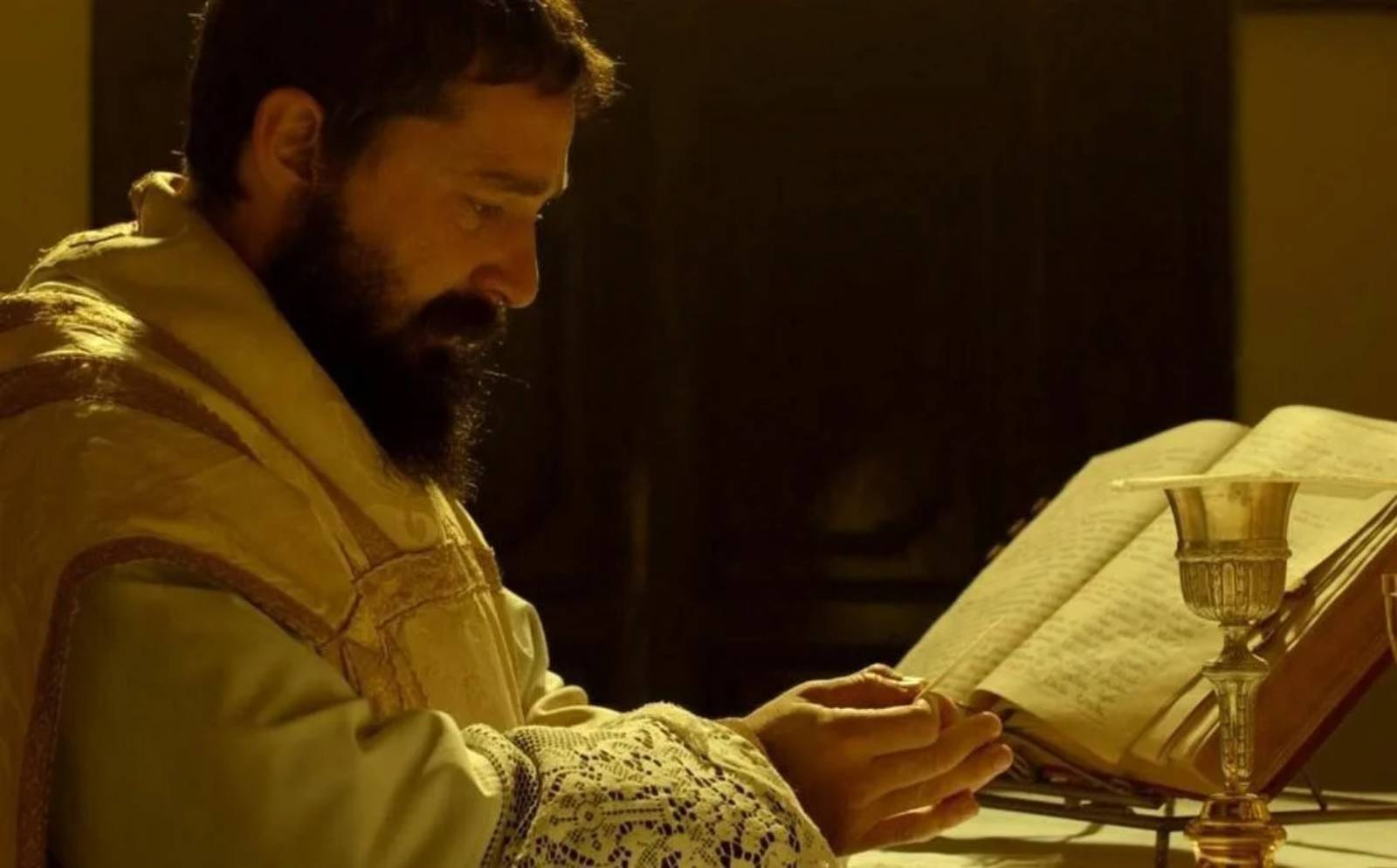
The film is grounded in the reality of Italian life shortly after World War I, as socialist ideas gained currency amid calls for a transformation of society and the populace imagined a better way of life following their army’s traumatic return from the battlefield. The town of San Giovanni Rotondo, located in the country’s southeast, is conceived by Ferrara and first-billed co-screenwriter Maurizio Braucci (who appositely worked on Martin Eden) as a microcosm of this societal shift, where the ruling class harass their charges and dispute the results of a key national election in an apt parallel to Trumpian America. – David K. (full review)
The Plains (David Easteal)

It’s telling that even the more ignoble ways this movie could have been sold (“Hollis Frampton takes a road trip with James Benning!”) won’t exactly find distributors upping their offer. (A three-hour feature set largely in the backseat of an Australian businessman’s car as he drives home from work day after day, occasionally joined by director David Easteal, could also suggest results of an arthouse-festival randomizer.) When they’re not much for sincere pleas, either, it probably wouldn’t help if I say this film—almost impossibly a feature debut following three shorts produced between 2007 and 2015—somewhat rewrites the notions of what a movie should be, the possibilities of what it can. A miracle. – Nick N.
The Maiden (Graham Foy)
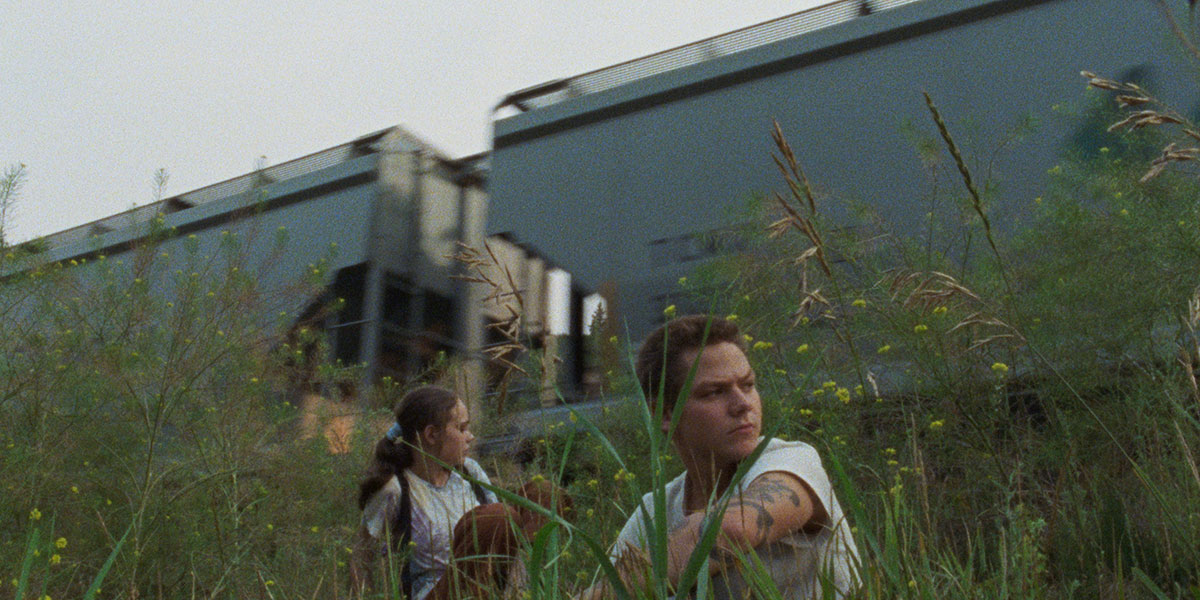
Split into two distinct halves, Graham Foy’s debut The Maiden starts off as a look at two high school students who each lose their best friend (one from a tragic accident, the other from getting older and drifting apart). And what may seem a quiet, meditative portrait of grief and coming of age opens into something else entirely once one of its leads decides to head into the woods just outside of the suburban sprawl they call home. Many filmmakers have taken inspiration from Apichatpong Weerasethakul in the last decade, but few have been able to tap into the emotional resonance of his work. Foy’s work pulls that feat off without ever feeling too indebted to his influences (mainly Tropical Malady), which is part of why The Maiden is one of the year’s best directorial debuts. – C.J. P.
Met Mes (Sam de Jong)
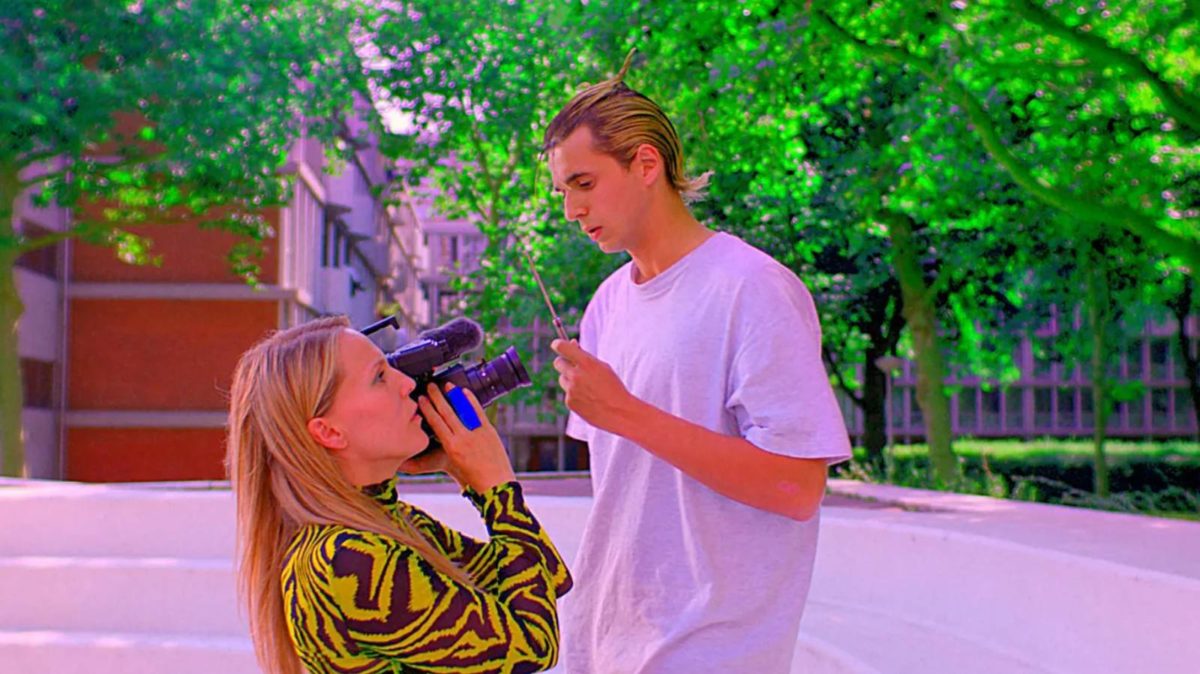
Sam de Jong’s latest film is a bizarre and hilarious takedown of well-meaning, liberal documentary filmmaking, where a game show host quits her job to film an “authentic” portrayal of an impoverished neighborhood then goes running to the police after her camera gets stolen. Met Mes is nothing less than scathing in how it attacks its targets, but the offbeat tone and nauseating, hyper-saturated color palette (think Harmony Korine if he got his stomach pumped) make de Jong’s film unforgettable and his best work to date. – C.J. P.
Mutzenbacher (Ruth Beckermann)
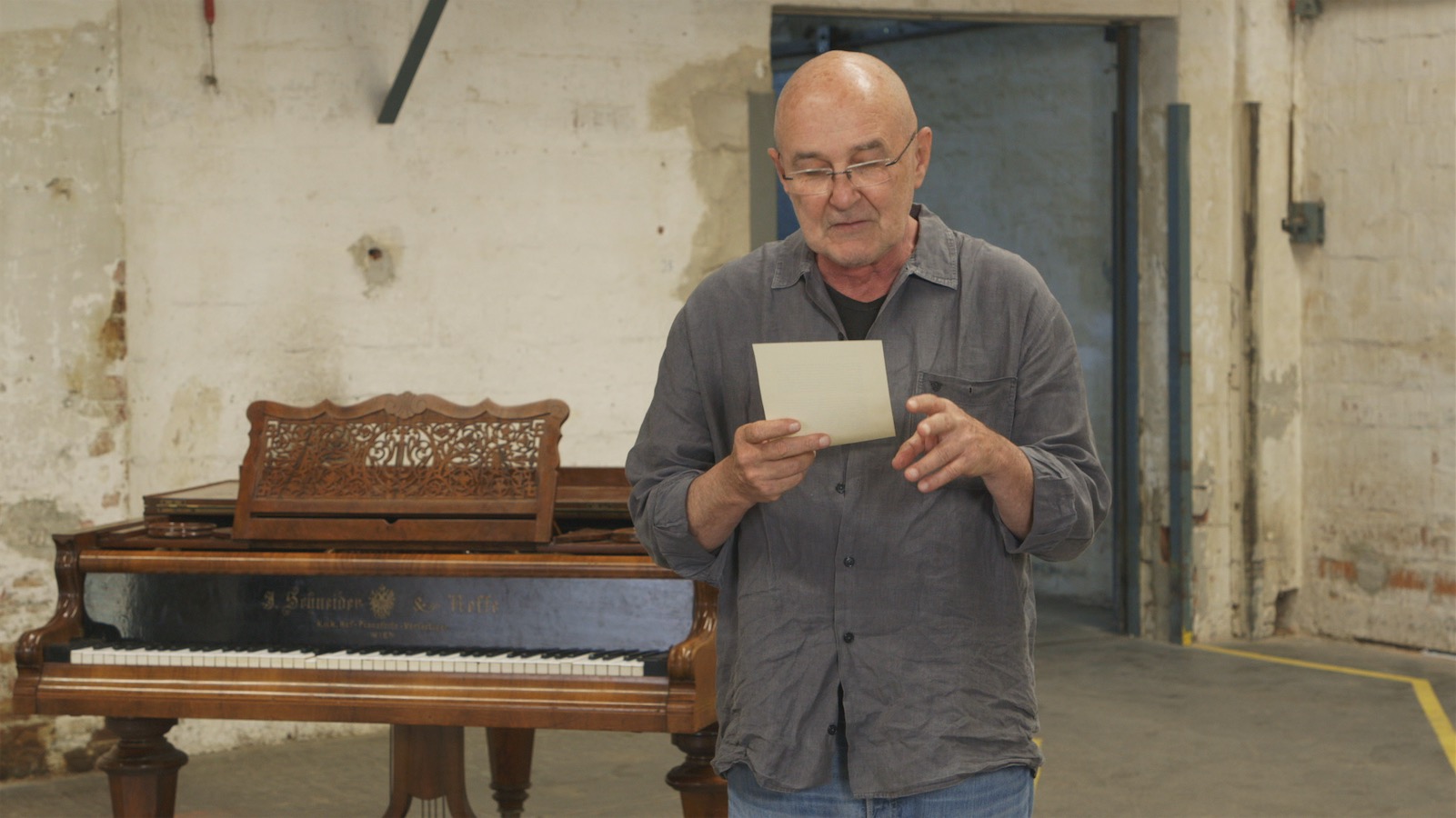
Update: Mutzenbacher arrives on MUBI on February 16.
That the Viennese author Felix Salten wrote the book Bambi was based on while also being an avid hunter—so much so that he’s said to have killed over 100 deer—is a fine paradox for a life’s work; but then Salten had another. In 1906 a book was released anonymously, titled Josefine Mutzenbacher; or, The Story of a Viennese Whore, as Told by Herself. Aside from a smattering of bans over the last century, the novel has stayed in print ever since, selling around three million copies. It has always been controversial, and it has always been attributed to him. – Rory O. (full review)
Next Sohee (July Jung)
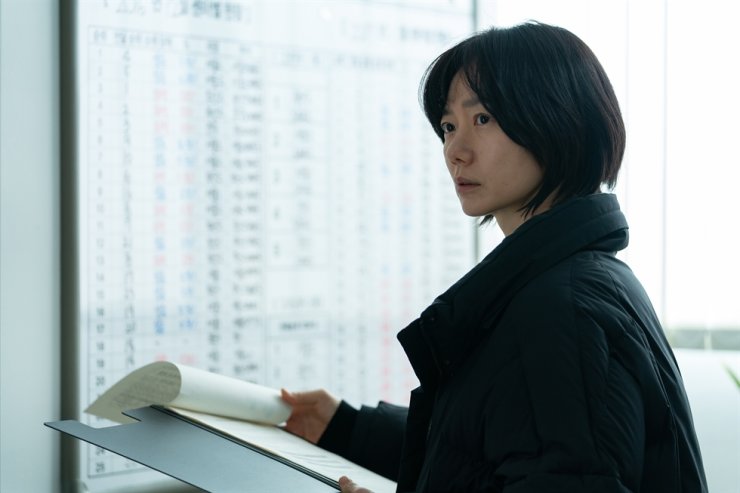
Unflinching and full of fury, July Jung’s Next Sohee details the dehumanizing process a high school student goes through in her externship program, then follows a police officer (Bae Doona) whose investigation of the same program uncovers a system designed to profit off exploiting its young, vulnerable participants. Jung’s direction is far from subtle, but her righteous anger makes Next Sohee’s more on-the-nose moments go down easier—it comes with the catharsis of seeing someone calling out the worst of capitalism for what it is. – C.J. P.
Queens of the Qing Dynasty (Ashley McKenzie)
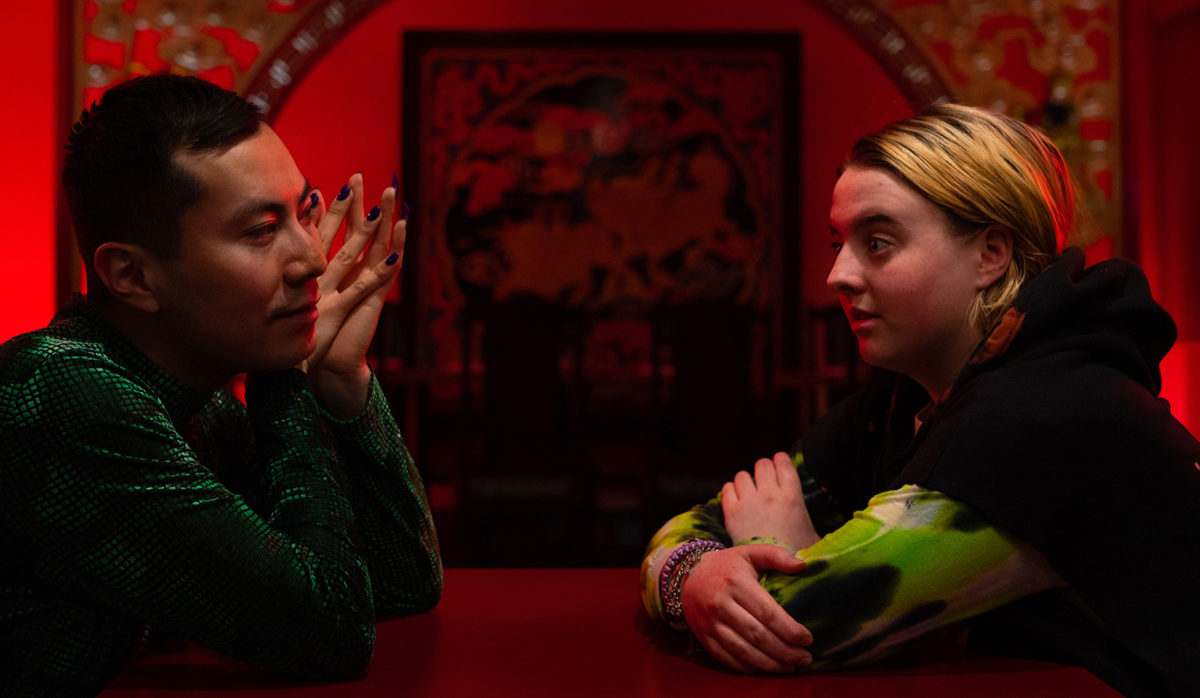
Update: Queens of the Qing Dynasty has been picked up by Factory 25.
Entering blind to Ashley McKenzie’s oeuvre let this surprise from almost moment one—it’s truly the closest I’ve seen an English-language feature come to evoking institutional decay and personal struggle à la Pedro Costa. Remarkable comparison for a second feature, but Queens—its compositional instinct, durational sense, relentless commitment to performance style—have stayed over ten months. One expects its rep to build over time, ideally as McKenzie debuts a follow-up. – Nick N.
Riceboy Sleeps (Anthony Shim)
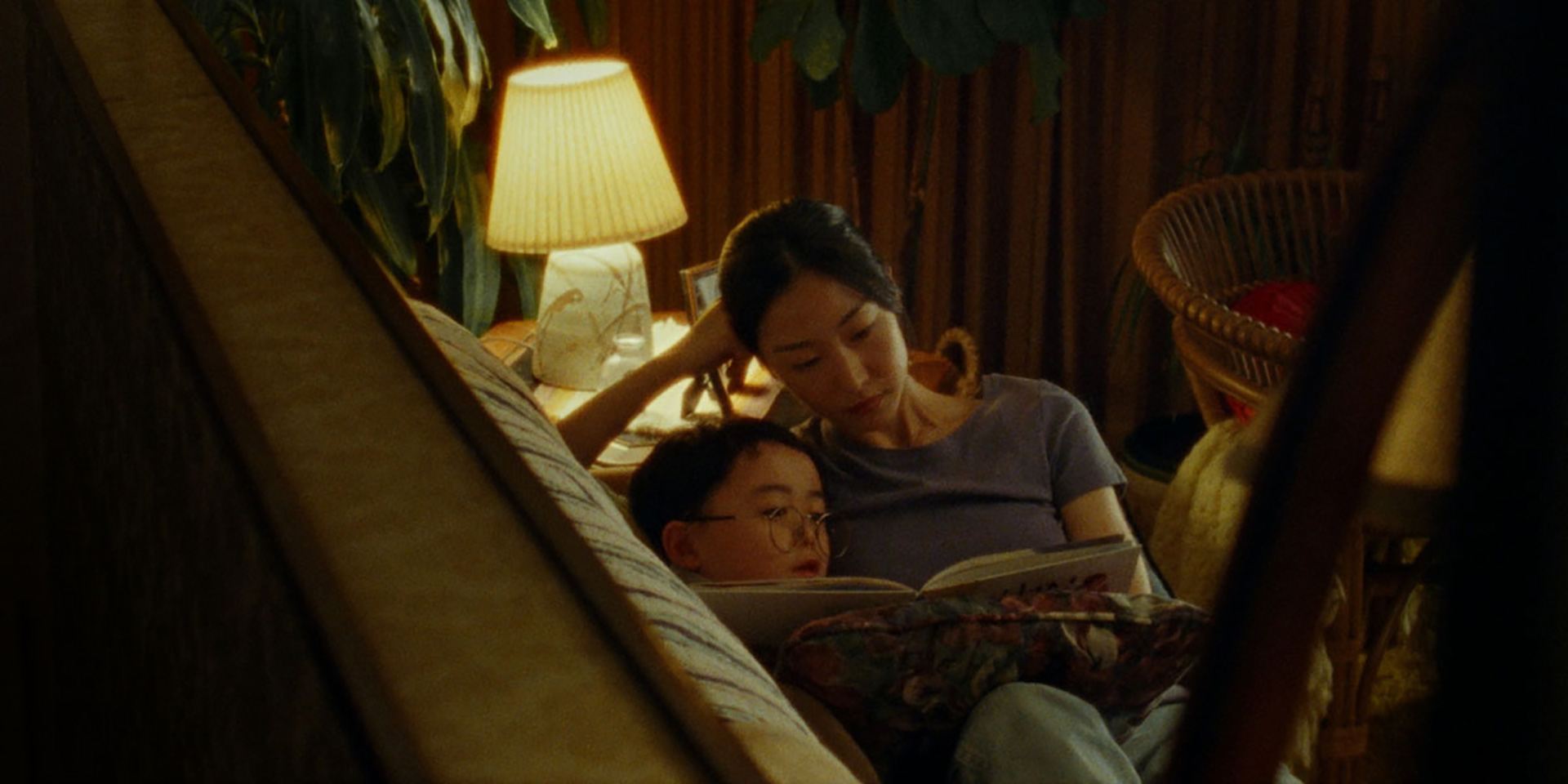
So-Young (Choi Seung-yoon) didn’t want to leave South Korea. She had no choice. The father of her newborn son committed suicide and, as an orphan who was never adopted, she had no other family. So, with nowhere to turn and a boy who couldn’t legally become a citizen due to being born out of wedlock, she immigrated to Canada to start anew. There she would build a home for the two of them and a wall in front of her past. Questions about Dong-Hyun’s (Dohyun Noel Hwang at six and Ethan Hwang at sixteen) father were delayed indefinitely and ultimately left unanswered no matter how many times he asked. So-Young only wanted to look forward and, eventually, so did Dong-Hyun. Until their future together was unceremoniously stolen away. – Jared M. (full review)
Scala (Ananta Thitanat)
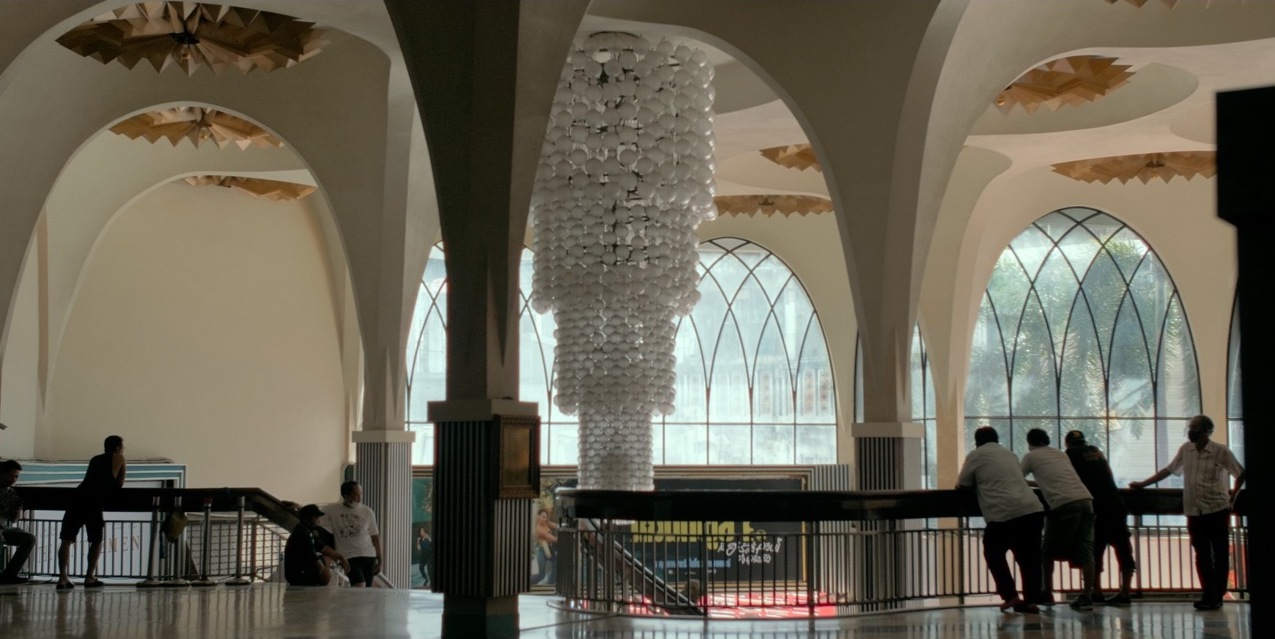
In the heyday of big-screen entertainment Thailand was home to some 700 standalone single-screen theaters. By 2019 only one of them survived in Bangkok. It was the Scala, a thousand-seat cinema that opened its doors on New Year’s Eve 1969 and closed them 51 years later, in July 2020, when it was shut, razed to the ground, and turned into a shopping mall. Scala, Ananta Thitanat’s heart-shaking documentary, is a chronicle of its demolition, but also a tribute to the mystical power it held over generations of patrons, told by the people who worked there and were eventually hired to dismantle it. Few films since Tsai Ming-liang’s Goodbye, Dragon Inn have captured the magic of a movie theater with the same awe Thitanat pours into Scala. Her feature debut, truly one of the finest premieres at this year’s Berlinale, is an engrossing obituary that feels joltingly alive in its struggle to rescue a place from oblivion, and immortalize cinemas as those untimely hideouts where stories are shared and lives changed. – Leonardo G. (full review)
Small, Slow But Steady (Shô Miyake)
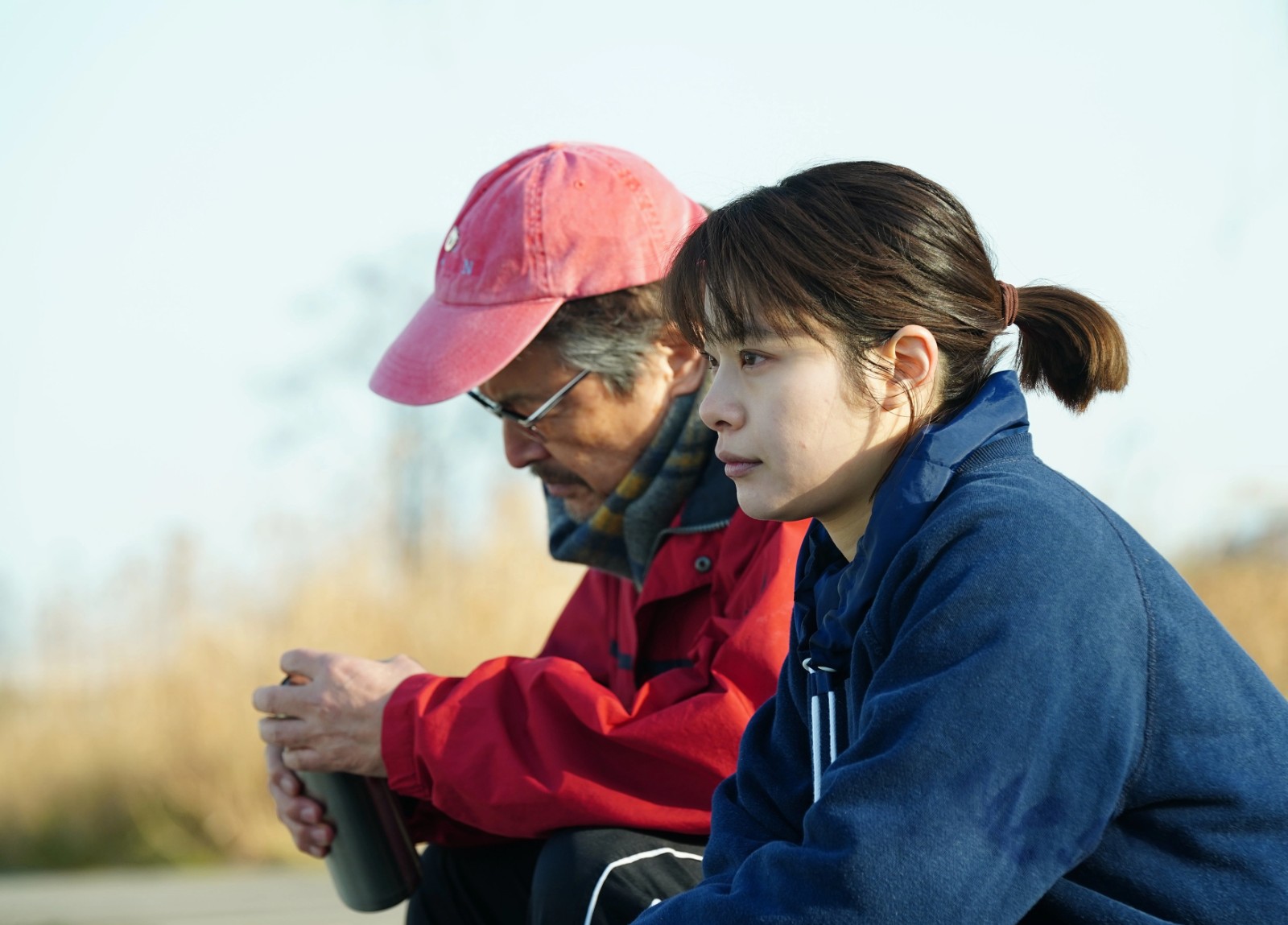
What drops of cinema are still to be wrung from boxing? The new Japanese drama Small, Slow But Steady is about as calm and modest as its title suggests, but there are surprising swings within those margins. Aesthetically it takes some cues from certain films of the 1960s, notably those of the late Yasujirō Ozu, but its drama could hardly be more contemporary. Gleamed, if not quite ripped, from the headlines, it partially tells the true story of Keiko Ogasawara, a female boxer who went pro in 2009, becoming the first hearing-impaired person in Japan to ever do so, then won her first fight with a shock first round knockout. Can’t say I’ve seen that one before. – Rory O. (full review)
Snow and the Bear (Selcen Ergun)
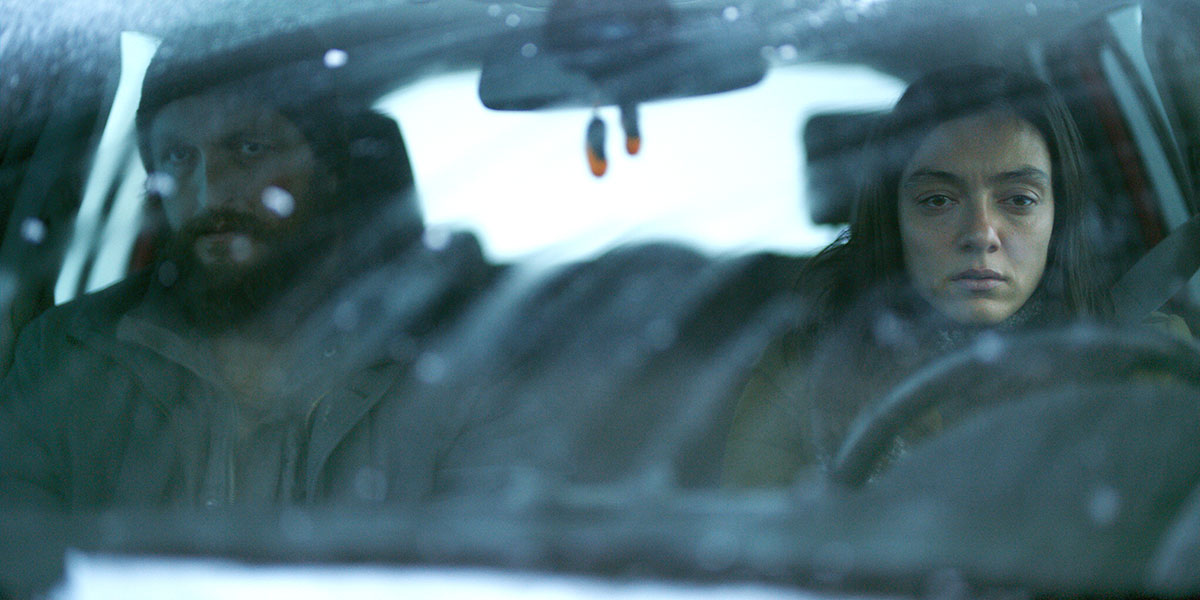
Asli (Merve Dizdar) didn’t have to come. It doesn’t matter that her compulsory assignment as a nurse was to be stationed in a small Turkish village in the middle of nowhere. Her father had strings to pull to get her reassigned. The reason she went anyway isn’t about not wanting to cheat the system like her parents think when they blame “stubbornness” as the cause of their fear for her safety due to blizzards and bear attacks. It’s because Asli doesn’t want to feel as though she needs protection. She doesn’t. She’s an adult woman who understands all too well the implicit patriarchal demand for compensation that comes with good deeds—that sense of feeling trapped, always owing. She’s tired of not being respected and having no control. – Jared M. (full review)
Tchaikovsky’s Wife (Kirill Serebrennikov)
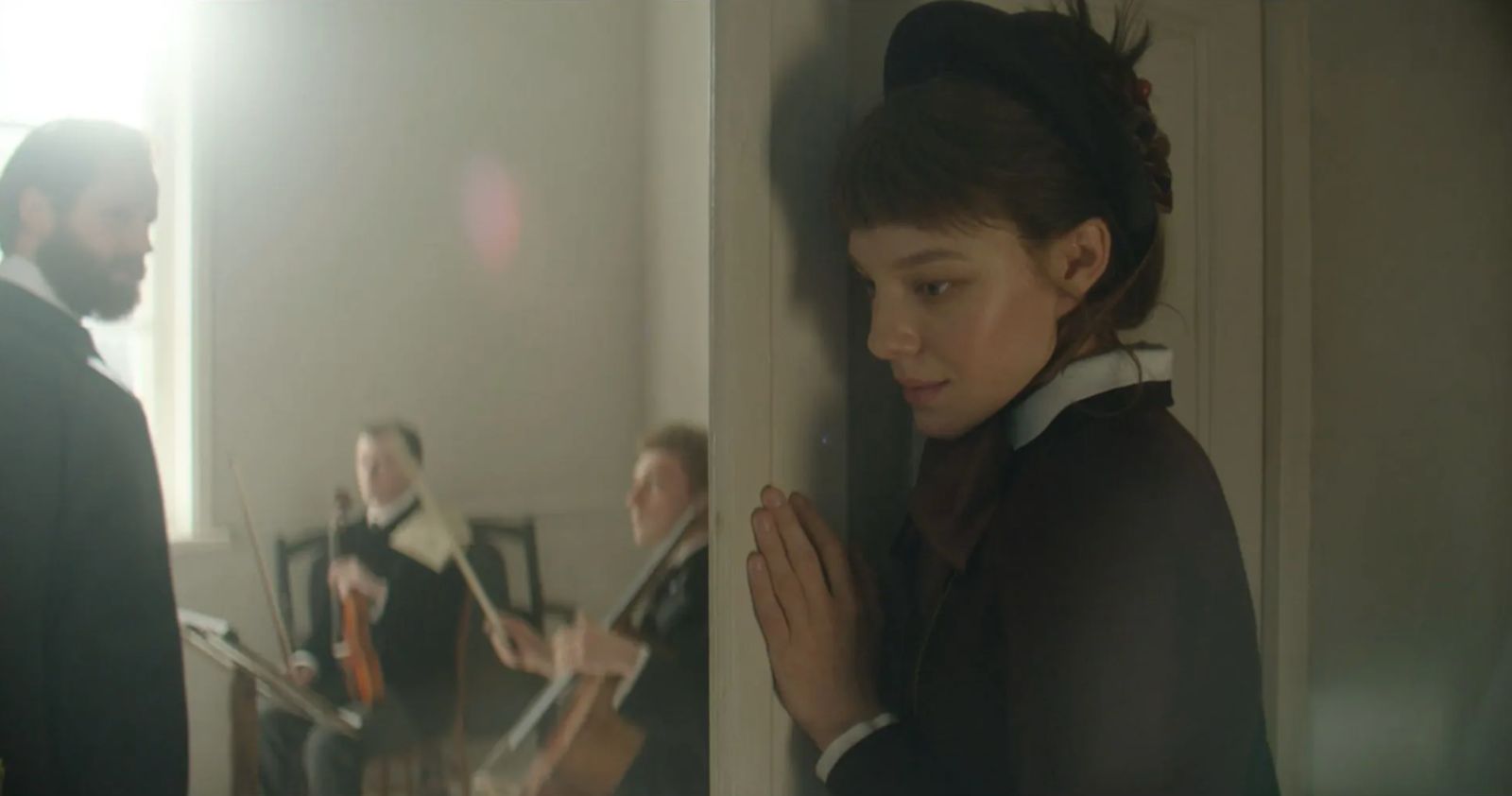
A fevered, hypnotizing, meticulously detailed period piece with a protagonist so monomaniacal the film could almost be considered high camp, it focuses on the tumultuous marriage between Antonina Miliukova (higher-class by name, if not by nature, and played with verve by Alyona Mikhailova) and the Russian composer Pyotr Tchaikovsky (Odin Biron), who was gay. The film moves from their first meeting (a boozy party; she 16 years young, he 25) to Antonina’s time at the conservatory where he lectured. Her first proposal is a bust (a businesslike discussion where Antonina puts her total devotion and a hefty dowry on the table) but eventually the beleaguered Pyotr accepts defeat. It will be the love “of a brother,” he warily explains, barely believing the words coming out of his own mouth, “a quiet, calm love.” Antonina, to borrow a phrase, prefers heavy metal. – Rory O. (full review)
Thunder (Carmen Jaquier)

If your thirst for movies about the sexual awakening of French-speaking nuns wasn’t quenched by Paul Verhoeven’s Benedetta, take a look at Thunder, a gorgeously filmed albeit very different drama set in the Swiss alps where nudity, sex and religious fervor are in no short supply. But while Benedetta subscribes to Verhoeven’s penchant for provocative schlock, this marks a more thoughtful but no less esoteric and sensually thrilling debut from writer/director Carmen Jaquier. – Ed F. (full review)
The United States of America (James Benning)
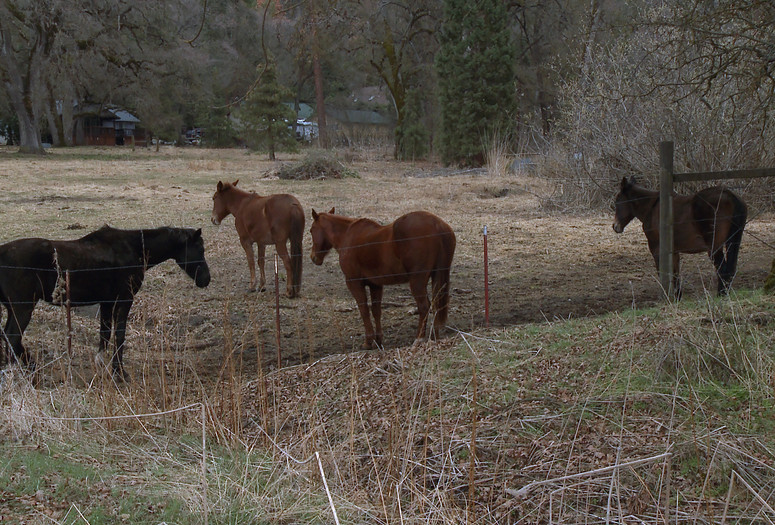
52 static shots, each one set in a different state (plus Washington, D.C. and Puerto Rico), played in alphabetical order. Like almost every James Benning film, The United States of America is easy to describe but there’s far more going on within. Compositions and bursts of music on the soundtrack recall Benning’s prior work (the feature is a riff on his 1975 film of the same name co-directed with Bette Gordon) and America’s own vast, complex history. And as we finally arrive at Wyoming, after spending over an hour-and-a-half confronting the impossibility of making a complete portrait of the United States, Benning drops a punchline that makes for one of the best endings to a film this year. – C.J. P.
War Pony (Riley Keough and Gina Gammell)

Update: War Pony has been acquired by Momentum Pictures.
Riley Keough was working on American Honey in South Dakota when she met a couple locals who’d been cast as extras: Bill Reddy and Franklin Sioux Bob. They hit it off and immediately became friends outside production. Bill and Frank invited her to their home, Pine Ridge, and Keough and co-director Gina Gammell—who started a production company, Felix Culpa, together in 2018—quickly fell in love with the people and the land. Next thing you know, it’s 2019 and Felix Culpa is in production on its first feature. – Luke H. (full review)
